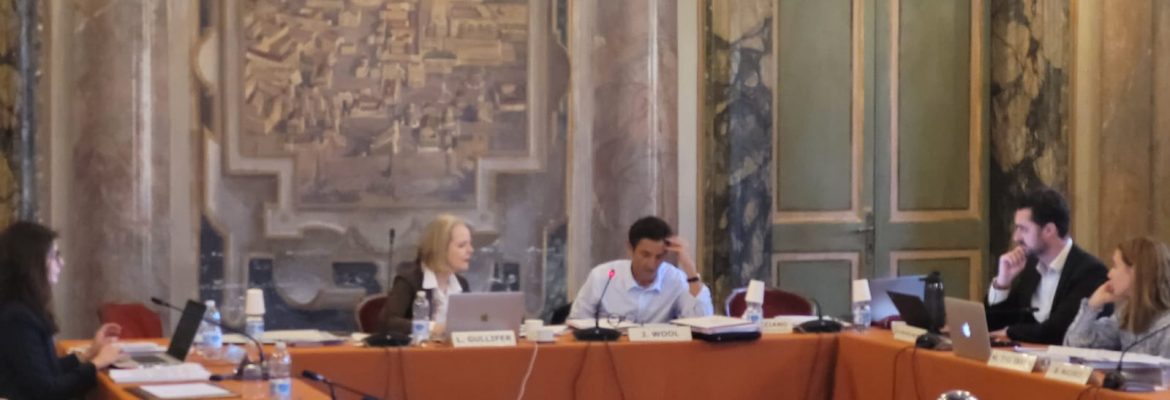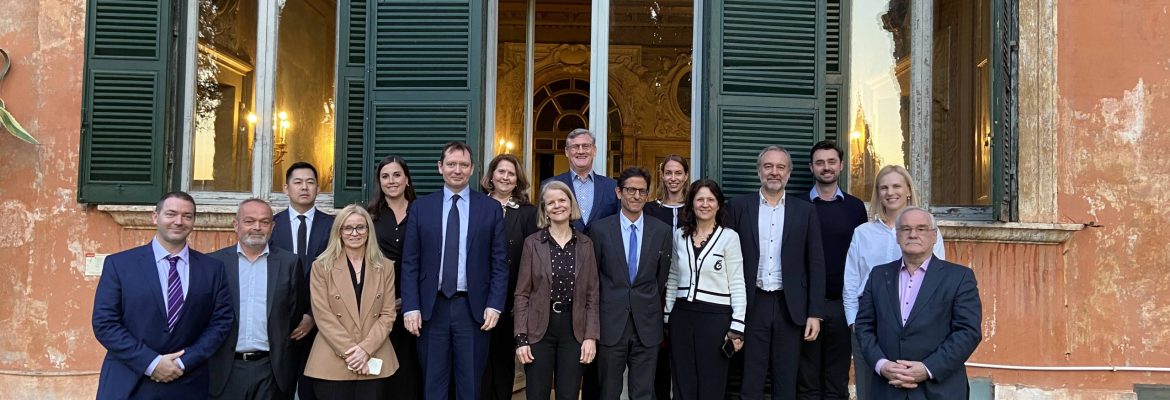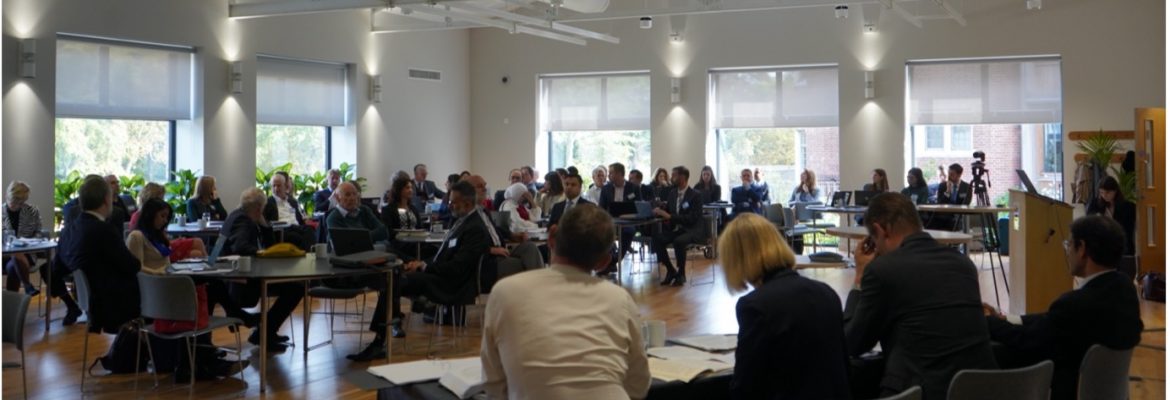
The purpose of the Cape Town Convention Academic Project (CTCAP) is to facilitate and further the study and assessment of the Convention and its Protocols, for the benefit of scholars, students, practising lawyers, judges, government officials, and others working in the relevant industries, including by the provision of information on, and education about, the Convention and its Protocols.
The Project is a joint undertaking between the University of Cambridge and UNIDROIT. The Aviation Working Group (AWG) is the founding sponsor of the Project. To learn more click here.
13th Cape Town Convention Academic Project Conference 2024
Cape Town Convention Academic Project – 13th Conference 11th and 12th September 2024 Invitation This year’s conference will be held on Wednesday 11th and Thursday 12th of September 2024. It will be held in Cambridge as an in-person conference, but … Continued
Find out more »The Cape Town Convention Academic Project maintains an extensive Repository of documents related to the Cape Town Convention and its Protocols. The Repository includes Operative Legal Texts, Developmental and Legislative Material, International Registry Material, National Implementation Material, Professor Sir Roy Goode’s Official Commentaries, Reports of Judicial Activity, Scholarly Articles, Guides to to the Cape Town Convention, Economic Assessments, Instruction Materials, and Video Library.
Use the search bar below to search the entire Repository, or click on any of the headings above to explore specific categories of documents.

The Cape Town Convention System: Introduction

Space Protocol to the Cape Town Convention

What is the MAC Protocol: Video for the Side-Event on 17th December

-
The Cape Town Convention System: Introduction
The Convention on International Interests in Mobile Equipment (also known as the Cape Town Convention) is an international treaty designed to facilitate the use of a global system of secured transactions law for financing of various types of high-value, uniquely identifiable, and mobile pieces of equipment. The Cape Town Convention applies to specific sectors through Protocols. Presently, there are four Protocol to the Convention: - Aircraft Protocol (2001) - Luxembourg Rail Protocol (2006) - Space Protocol (2012) - Mining, Agriculture and Construction (MAC) Protocol (2019) Further information on the Cape Town Convention is available on the UNIDROIT website at https://www.unidroit.org/instruments/security-interests/cape-town-convention and on the Cape Town Convention Academic Project website at https://ctcap.org/. For specific inquiries, UNIDROIT can be contacted at info@unidroit.org. -
Space Protocol to the Cape Town Convention
The Space Protocol of the Cape Town Convention is an international treaty that promotes the use of asset-based financing in the space sector. Learn more at https://www.unidroit.org/instruments/security-interests/space-protocol -
What is the MAC Protocol: Video for the Side-Event on 17th December

Electronic registries are the most important element of systems that collect, store, disseminate and establish rights in data or property represented by that data. The incorrect use and mismanagement of these registries can result in liability and legal uncertainty that translates to substantial economic and commercial damages.
The Cape Town Convention, which, through its various Protocols establishes electronic registries for different types of high value mobile assets, sets out a standard for the responsibility of registrars of modern electronic registries with the only defence being that of having followed ‘best practices’ in registry design, operation and back-up. However, ‘best practices’ in electronic registries is not defined by the Convention, nor have international parameters been developed more generally in relation to electronic registries.
The project on Best Practices in the Field of Electronic Registry Design and Operation (BPER) seeks, through an inter-disciplinary approach, to study and link elements of the ‘best practices’ standard and to develop a framework from both legal and technical angles. The project is run by the Cape Town Convention Academic Project, in partnership with the UNIDROIT Foundation, Aviareto, and the Aviation Working Group.
So far, the Project has developed and published a Guide on Best Practices for Electronic Collateral Registries over the course of four Workshops which were held in Oxford and Rome. In September 2021, a fifth Workshop for the project was organised at the University of Cambridge. The Project has now shifted its focus onto Electronic Business Registries and will work towards developing a best practices guide for the same.

This project seeks to develop standards for the economic assessment of international commercial law reform (ICLR).
Economic benefits, whether micro, macro, or developmental, are usually stated to be the central and driving objective of, and justification for ICLR. Yet the evidence of such benefits, the characteristics of law reform needed to produce such benefits, the data and methodology to establish such benefits (the core EA elements), inter alia, has not yet been subject to systematic academic work. There are few, if any, agreed international principles, standards, or parameters for assessing economic benefits in this context.
This project provides a platform for work in this and seeks to create principles, standards, and parameters, including the development of guidelines for governmental economic impact and cost-benefit analyses of ICLR. It is an inter-disciplinary project with involvement from industry, national governments, international organisations, legal scholars and economists.
It is run by the Cape Town Convention Academic Project, in partnership with the UNIDROIT Foundation and the Aviation Working Group.
Looking for more information? Contact us.



